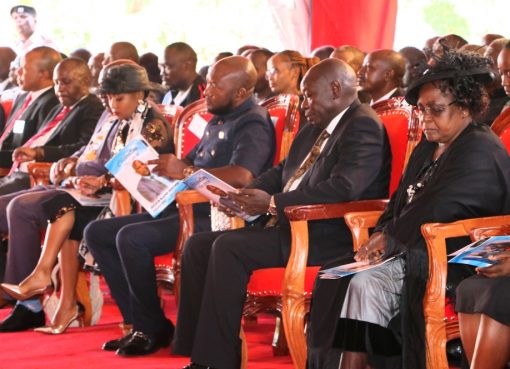Continental and regional free trade regimes need proper management to generate a win-win outcome for stakeholders in Africa’s integration agenda.
Dr. Stephen Karingi, Director of Capacity Building Development at the United Nations Economic Commission for Africa (UNECA) said that successful implementation of the African Continental Free Trade Area (AfCFTA) depends on how interfaced it is with pre-existing Regional Economic Communities (RECs), Free Trade Area (FTAs).
Giving a key note address during the opening of the 7th COMESA Annual Research Forum held virtually Monday, Dr. Karingi however said that law scholars have already argued some wordings in the AfCTA Agreement suggesting that the relationship is likely to be more complex and thus need to be properly analyzed and understood.
“One of the main objectives of the AfCFTA is to accelerate regional and continental integration through the consolidation of the multiple and overlapping trading regimes, embodied in pre-existing (RECs), FTAs, such as the COMESA,” Dr. Karingi noted.
He said a huge promise that the AfCFTA holds for the continent, its members and its people is that when fully implemented, it will consolidate African markets into a single market of more than 1.2 billion people and a GDP of over USD 2.5 trillion.
This, he added, will in the first instance be through elimination of tariffs and non-tariff barriers; and liberalization of services trade that offers tremendous possibilities for businesses across the continent, while expanding tax base for governments as a result of expanded or new businesses’ opportunities.
Undeniably, he added that the advent of the AfCFTA and how it relates with the trade integration agenda of RECs is underpinned by diverse issues, opportunities and challenges, that will need to be properly engaged, including through research and analyses.
“This will deepen understanding of the AfCFTA and RECs level of integration agreements and would also facilitate their effective implementation.
With a membership of 21 states, a population of some 560 million people and a combined GDP of USD 769 billion, Dr. Karingi said COMESA is one of Africa’s biggest RECs, which has also made significant progress in many areas of integration.
Further, Karingi noted that some RECs, individually or collectively have made great strides in some dimensions of integration, way ahead of what is currently envisioned in the AfCFTA with four African Union-recognized RECs having FTAs that have achieved higher levels of integration than the AfCFTA at the time of its entry into force.
“AfCFTA could lean on the progress that RECS such as COMESA have made in important areas of integration including the COMESA Investment Area, COMESA Competition Policy, COMESA’s progress on the issue of Intellectual Property Rights, and the COMESA Digital FTA,” he said.
Dr. Karingi however said all this requires careful and thoughtful management backed by evidence-based research which the COMESA Forum provides.
The Secretary General (SG) of COMESA Ms Chileshe Kapwepwe in her statement said the region has not been spared by the COVID-19 pandemic and therefore there was need to strengthen openness, coordination and collective approach by Member States in facilitating movement of goods and services amidst restrictive measures.
“We need to safeguard the existing trading arrangements and avoid erosion of gains already made on trade liberalization in COMESA and support local production, regional value chains and availability of products,” she said
Kapwepwe added, “It is widely accepted in Africa that regional economic integration remains a critical part of the solutions to the pandemic and therefore evidence-based policy research on trade policy issues will play a critical role in our post-Covid-19 recovery path.”
She however warned that since the 1950s there has been a proliferation of regional integration agreements (RIAs), making them the centerpiece of many questions of global governance and these are questions that only in-depth research and analysis can find appropriate solutions.
The Chief Advisor of AfCFTA & Head of AfCFTA Negotiations Unit, Africa Union Commission (AUC) Prudence Sebahizi, gave a status report on the AfCFTA negotiations and the Interface between AfCFTA and regional economic communities.
So far AfCFTA has been signed by 54 of 55 African Union member states and is thus the largest free trade agreement signed since the establishment of the World Trade Organization.
The three days Forum whose theme is, “Harnessing Intra-COMESA Trade through the Interface with African Continental Free Trade Area (AfCFTA) will review nine best research papers selected from a list of 39 submitted to COMESA in response to a call for papers made early this year.
By Wangari Ndirangu


